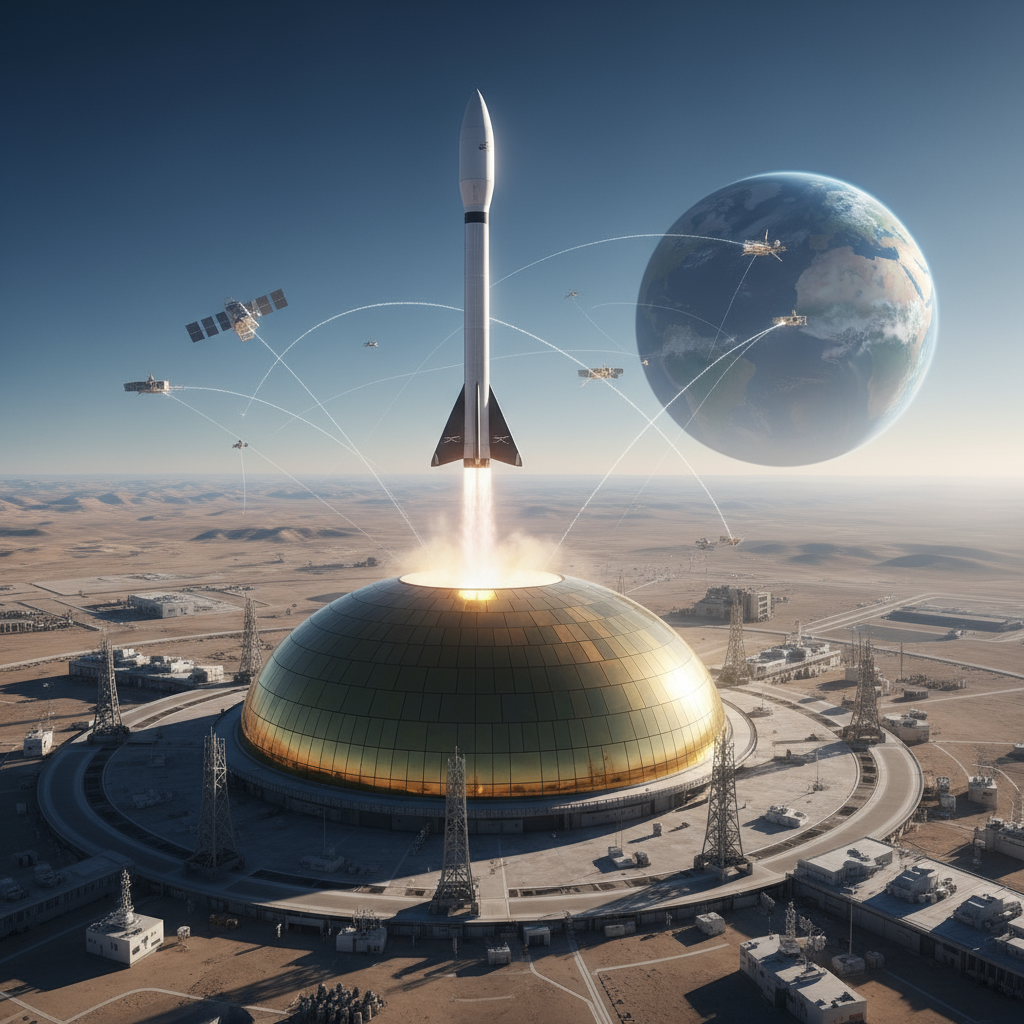The race to dominate the space domain is heating up, and the Pentagon is betting big on Elon Musk’s SpaceX. Reports indicate that SpaceX is poised to secure a hefty $2 billion contract to develop advanced satellite technology, rumored to be a key component of a project known as the “Golden Dome.” What exactly *is* the Golden Dome, and what role will SpaceX play in its creation? Let’s delve into what we know about this potentially game-changing initiative.
Decoding the “Golden Dome”: A Next-Generation Satellite System

The specifics surrounding the “Golden Dome” are shrouded in secrecy, but the underlying objective is clear: to create a more resilient and advanced satellite network for the United States. This isn’t just about better communication; it’s about enhancing national security and maintaining a strategic advantage in an increasingly contested space environment.
The current satellite infrastructure faces numerous vulnerabilities, from potential cyberattacks to physical disruption. Imagine a scenario where vital communication channels are severed during a crisis. The “Golden Dome” aims to mitigate these risks by incorporating cutting-edge technologies, such as improved encryption, enhanced maneuverability, and potentially even defensive capabilities.
Think of it as building a space-based shield, not a literal dome, but a sophisticated network designed to protect critical assets and ensure uninterrupted operation even under duress. The name “Golden Dome,” while evocative, is likely a codename masking the true nature of the project.
SpaceX’s Role: Launching Innovation into Orbit

SpaceX’s involvement signifies a significant vote of confidence in the company’s capabilities. They’ve disrupted the aerospace industry with reusable rockets and cost-effective access to space, making them an ideal partner for deploying and maintaining this advanced satellite constellation.
Their expertise extends beyond just launching satellites. SpaceX also has a proven track record in satellite manufacturing through their Starlink program. This experience is invaluable in developing the specialized satellites required for the “Golden Dome,” which will likely demand unique performance characteristics.
This contract underscores the growing importance of commercial space companies in national security. SpaceX is no longer just a launch provider; they are a key player in shaping the future of space-based defense. It highlights the shift away from traditional government contractors towards leveraging the innovation and agility of the private sector.
The Implications: A New Era of Space Defense
The development of the “Golden Dome” has far-reaching implications for the future of space defense. It signals a proactive approach to safeguarding vital space assets and deterring potential adversaries. A more robust and resilient satellite network strengthens national security by providing enhanced communication, surveillance, and early warning capabilities.
This initiative also underscores the growing importance of space as a domain of strategic competition. Other nations are rapidly developing their own space capabilities, both offensive and defensive. The “Golden Dome” can be viewed as a response to these developments, a way for the US to maintain its edge in orbit.
Ultimately, the goal is to create a space-based deterrent, ensuring that any potential attacks on US satellites would be met with a credible response, thereby dissuading such actions in the first place. This shifts the focus from simply reacting to threats to proactively shaping the space environment.
Challenges and Considerations: Navigating the Ethical Landscape
While the “Golden Dome” promises enhanced security, it also raises important questions. The militarization of space is a contentious issue, and the development of defensive capabilities could be perceived as escalatory by other nations.
Maintaining transparency and adhering to international agreements will be crucial to avoiding an arms race in space. It’s important to strike a balance between protecting national interests and promoting a peaceful and sustainable space environment.
Furthermore, the reliance on a single commercial provider like SpaceX also presents potential risks. Ensuring redundancy and diversifying the supply chain will be vital to mitigating vulnerabilities and avoiding over-dependence on any one company. The government will need to carefully manage its relationship with SpaceX to ensure that national security interests are prioritized.
The “Golden Dome,” powered by SpaceX’s innovative technology, represents a bold step towards securing America’s future in space. While the details remain closely guarded, the implications are undeniable: a more resilient satellite network, a stronger national defense, and a new era of space competition. As the project progresses, it will be essential to navigate the ethical and strategic challenges to ensure that space remains a domain of peace and opportunity for all.

